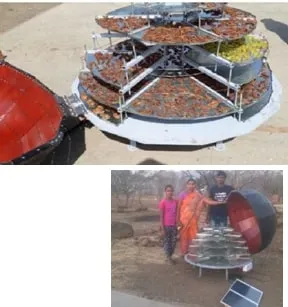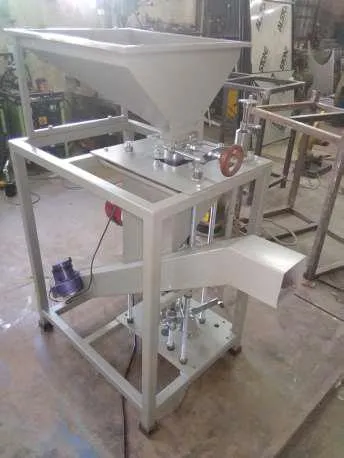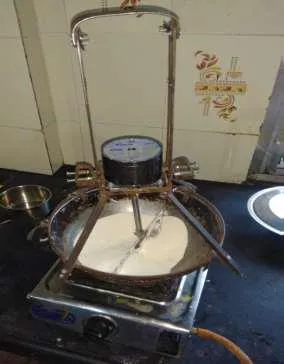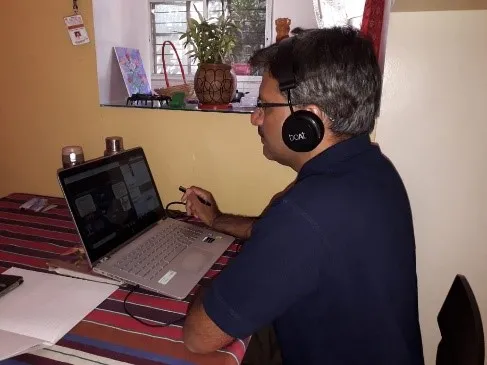RURAL ECO SYSTEM – Gold Mine of opportunities for students to make a mark
Session by Dr. Yogesh Kulkarni as part of Webinar Series “To Guide Engineering Students to select meaningful projects”
Effective people are not problem-minded; they are Opportunity-minded. They feed Opportunities and starve problems
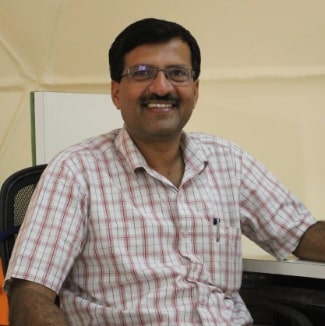
Above quote is perfect quote to introduce our speaker for this session Dr. Yogesh Kulkarni, who has around 25 years of experience on various innovation driven programs and is at present working as Director, Vigyan Ashram which also known as modern age Gurukul in the Village Pabal, near Pune. He is very passionate to bring transformation in the rural eco system and make a change to help the villages to be self-sufficient. Over the years, Vigyan Ashram become a technical hub for Rural Development and also created many entrepreneurs for Rural Development. Under leadership of Yogesh Kulkarni, Vigyan Ashram received ‘Development Marketplace award’ from World Bank to train 300-village level energy entrepreneurs. He is also editor of compendium on Scalable Rural Technologies.
Villages in India are still facing range of problems related with electricity, transportation, water, agriculture and many more things. As mentioned above Dr. Yogesh Kulkarni sees such challenges and constraints as opportunities to make a difference...
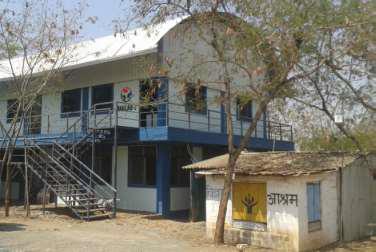
In 1999, Vigyan Ashram worked with Cor-DECT technology developed by IIT Chennai to provide Internet in Village Pabal and nearby 60 villages. Also provided first public telephone in around 72 remote villages in Bhimashankar Ranges. They did not stop there just by providing Internet in villages but also created a portal aAQUA in collaboration with IIT - Mumbai and KVK, Baramti, which answers all rural questions villagers may have. Looking at the work done by Vigyan Ashram on rural challenges, Dr. Neil Greshenfeld, Director, CBA (Massachusetts Institute of Technology) offered helping hand to resolve these problems. It was soon realized that it is difficult to explain problems remotely. Every problem has specific context and resource constraints. Which need to be considered while developing a solution. Therefore it was decided to give tools at the hands of the people, so that they can develop solutions to their own problems. That is how FAB LAB at Vigyan Ashram was started in 2002.
With this FAB LAB, Vigyan Ashram started using many different advanced technologies and tools to resolve these rural issues. FAB LAB at Pabal is equipped with many instruments like CNC machine, Laser Cutter, 3D Printer, Small Electronic Kits etc. Also with latest software tools lab using many CAD/CAM Software like SolidWorks, Programming Software and some open source tools.
For evolution of such meaningful projects at Vigyan Ashram goes through many phases such as identification of problems through community needs and research on that. Identify different technologies already developed for that through any research institutes, NGOs, Industries and then adopt those technologies to create a solution. If the technology or any solution is not available with any other organization then Vigyan Ashram develops such solutions. He shared a very interesting example of Rice De-Husking Machine – Brown Rice Cold Milling. Women Self Help group requested Vigyan Ashram to make Hand Pounded Rice machine. Students at Vigyan Ashram developed this machine and now this machine is commercially produced and 50+ units are sold until now.
Vigyan Ashram refers Sustainable Development Goals defined by United Nations to achieve Sustainable Development Goals as inspiration to find meaningful projects. These goals helps Vigyan Ashram to identify the problems and work on that. Under these Sustainable Development Goals, it has many areas like Zero Hunger, Clean Water and Sanitation, Decent work and economic growth, Quality education and such more 13 different goals.
Under this Sustainable Development Goals initiative, Dr. Yogesh Kulkarni shared a very interesting example of Egg Incubation Center, which helps many different self-help women groups to setup small hatcheries which has capacity of 500 or 1000 eggs. It also works on renewable energy to have uninterrupted electric supply as well.
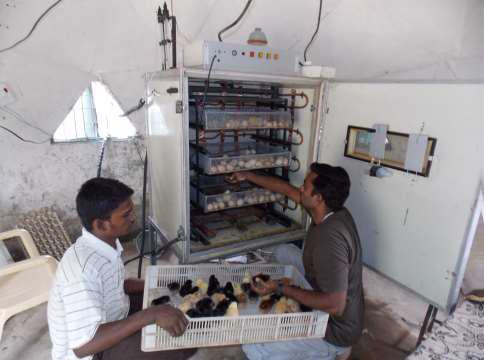
Dr. Yogesh Kulkarni advised students to identify drudgeries in any occupation. Particularly in rural occupation, and work to reduce drudgeries in that occupation. Just to quote an example, Laddoo Making Machine developed by students to reduce efforts of continuous stirring of flour while it is roasting on slow heat. With this, machine now, productivity has increased by 2.5 times. Dr Yogesh Kulkarni shared so many examples in such areas for which Vigyan Ashram has developed has developed very innovative solutions and deployed these products in actual use.
Dr Yogesh Kulkarni also appreciated and thanks La Fondation Dassault Systemes India which is supporting three very important and innovative projects on which Vigyan Ashram is working, one of which is develop a role model campus at a residential school in a village to demonstrate working concept of Self-sufficient Village.
While guiding students for different projects, Dr Yogesh Kulkarni suggested different opportunities to make villages self-sufficient in sectors like Energy, Waste Management, Agriculture, Water cleaning & management.
“Make globally connected locally self-sufficient village”
We sincerely thank Dr. Yogesh Kulkarni for sharing “how a vision driven approach can make a huge difference even if you are located in remote villages” as amply demonstrated by Vigyan Ashram. He motivated all students and professors to contribute for rural development by helping villages to be self-sufficient. He emphasized that technology knowledge and access available through our engineering education system, should help our country to be Self-Reliant and आत्मनिर्भर.
Dr. Yogesh Kulkarni, we really appreciate all your dedication and passion to work and lead by example for such noble cause. You are a great role model for many students, professors and technology savvy people.
